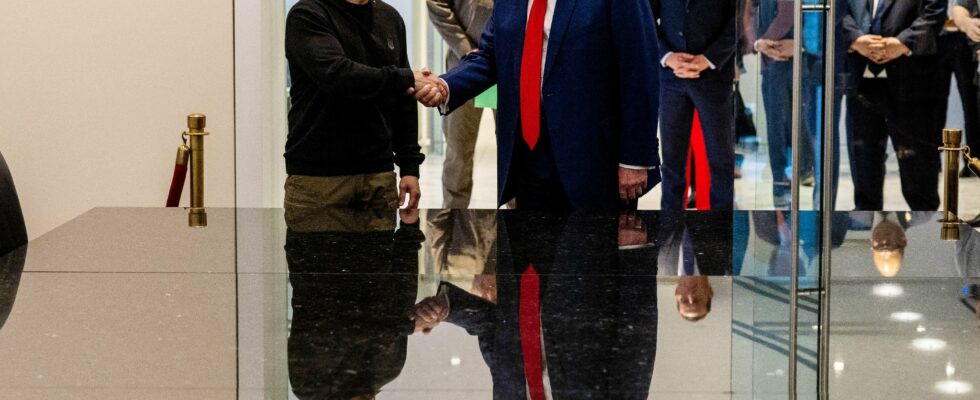The new Trump administration should be at odds with that of outgoing President Joe Biden on many points, starting with the war in Ukraine. In recent months, on the campaign trail, the 78-year-old tycoon has continued to insist that he was capable of imposing peace in Ukraine in “24 hours”. He decried, just like Vice President-elect JD Vance, the scale of the tens of billions of dollars in aid paid to kyiv.
According to information from Wall Street Journal (WSJ), the teams of the new elected president are already working to offer him several viable options to end the conflict. Options that remain secret, to say the least. “Anyone – no matter how high-ranking in Trump’s circle – who claims to have a different view or a more detailed window into his plans on Ukraine simply doesn’t know what he’s talking about or doesn’t understand that he makes its own calls on national security issues, very regularly, especially on an issue as central as this,” said a former Republican National Security Council adviser.
Divergent visions
Still according to information from WSJdifferent camps are competing to influence Republican foreign policy. More traditional allies like Mike Pompeo, the former secretary of state now in the running to lead the Pentagon, are likely to push for a settlement that does not appear to give Moscow a major victory. Other advisers, particularly Richard Grenell, a leading candidate to lead the State Department or serve as national security adviser, could prioritize Trump’s desire to end the war as soon as possible, even if it means forcing kyiv into significant concessions. “It is difficult to anticipate Donald Trump’s policies, because his entourage is made up of people with very different opinions,” however, judges John Herbst of the Atlantic Council and former United States ambassador in kyiv to AFP.
One idea proposed within Trump’s transition office, detailed by three people close to the president-elect and not previously reported, would involve kyiv promising not to join NATO for at least 20 years. Under the plan, the front line would essentially be locked down and both sides would have to agree to a 1,300 km2 demilitarized zone. An option which would go against the “victory plan” wanted by Ukrainian President Volodymyr Zelensky, the most important points of which are an official invitation to join the Atlantic Alliance, as well as the strengthening of military aid. To be able to maintain relative peace in these areas, Trump’s advisors suggest creating a peace mission, but without taking part in it. “We can do training and other forms of support, but the barrel of the gun will be European,” said a member of the president-elect’s team. “We will not send Americans to keep peace in Ukraine. And we will not pay for it. Ask the Poles, the Germans, the British and the French to do it.”
Secret negotiations
But the key to stopping this war, which has lasted for more than three years, could also be found in Europe. According to exclusive information from L’Express, emissaries meet regularly in the greatest secrecy, a few kilometers from Geneva, in Switzerland, with the aim of bringing Russians, Ukrainians, Americans and Europeans to the table. “These are informal meetings with experts, sometimes officials, when we reach sufficient maturity in the dialogue,” explains Thomas Greminger, former secretary general of the Organization for Security and Cooperation in Europe, and today at the head of the Geneva Center for Security Policy, the Swiss organization which oversees these meetings.
In this thrilling closed session, the red lines of the two camps are discussed, the terms of a possible ceasefire, security guarantees for Ukraine and future relations with Moscow. “These meetings have the merit of giving the parties an idea of what the other is prepared to accept. It is therefore crucial to continue them, even if nothing is decided,” indicates one of the participants. In recent months, initiatives of this type have multiplied.
